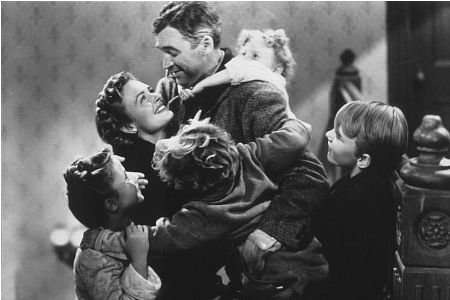Using the George Bailey method of facing the New Year
Tucked somewhere inbetween making tamales and lighting each of the 5 candles of Advent, watching the movie It’s a Wonderful Life has become sort of a family tradition for us. Call me sentimental, but I firmly believe the film to be a masterpiece of cinematic story-telling.
Greg Koukl, at Stand to Reason, recently pointed out an op-ed by Andrew Klavan, written in 2003, in which Klavan extolls the virtues of both Scrooge (1951) and It’s a Wonderful Life. He writes,
In “Scrooge,” a man grown rich because of heart-shriveling greed is forced by spirits to view the consequences of his existence.
In “It’s a Wonderful Life,” George Bailey, a man in financial trouble because of his large-souled generosity, is forced by an angel to view the consequences of his non-existence: what would’ve happened if he’d never been born.
On both sides of the mirror, the results are the same: a revolutionary personal transformation, what the New Testament calls “metanoia,” which is often translated as “repentance” but which means literally “a change of mind.”
After the metanoia, there’s a lot of Christmas caroling and happiness and that sort of thing. Thus movie critics – who frequently confuse darkness with depth – sometimes belittle these films as sentimental.
They’re wrong. Watched carefully, the films are disturbingly realistic. Because, for each protagonist, the change in outlook has absolutely nothing to do with a change in circumstance. They aren’t singing carols and so forth because they’ve won the girl or beaten the villain or made millions or righted wrongs. Scrooge can never bring justice to the people he’s ruined, and Bailey will never become the world-traveling architect he wanted to be.
As we enter the new year, we would do well to consider whether or not our outlook for the future is driven by our circumstances or by our will.
Happy New Year.
Tagged with: george bailey • it's a wonderful life
Like this post? Subscribe to my RSS feed and get loads more!


Two of my favorite stories, ‘though I’ve never heard them compared. Interesting point.